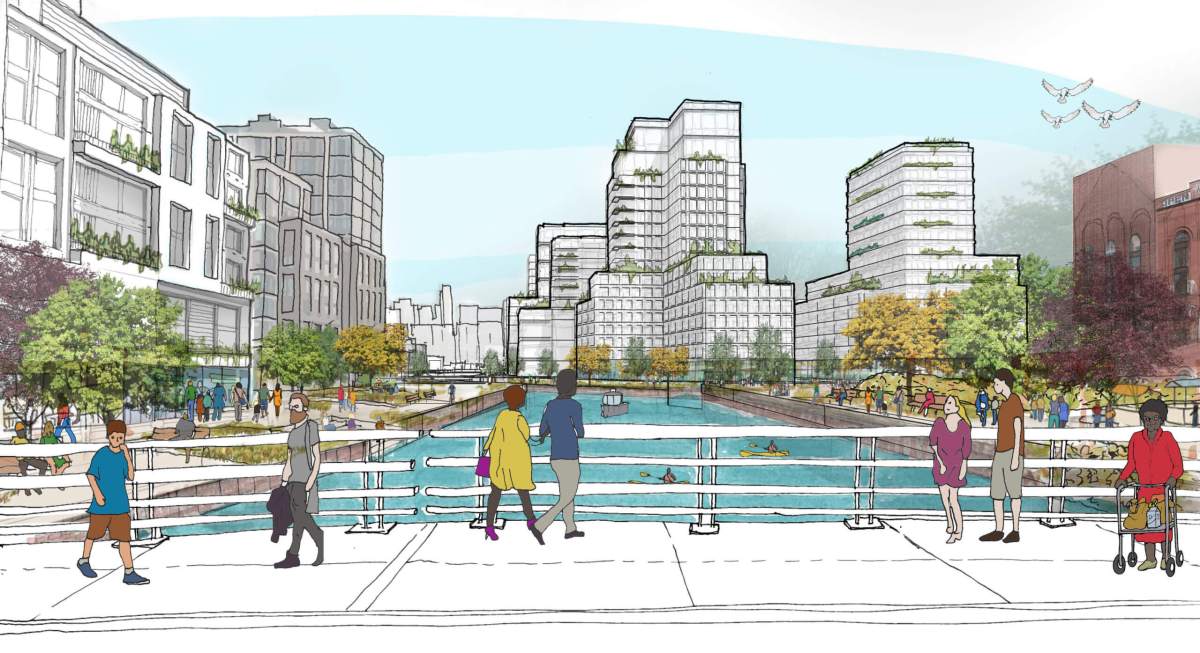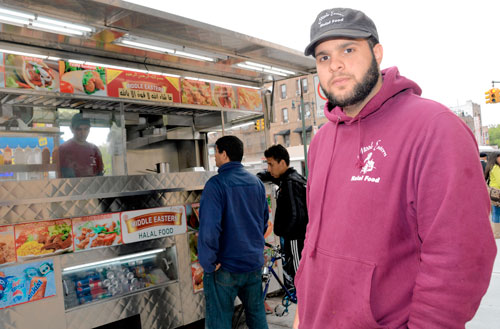A Brooklyn Supreme Court judge issued a temporary restraining order on the Gowanus rezoning after a group of opponents sued the city over transparency concerns — halting the neighborhood-wide land-use change until at least Jan. 27.
“This is a huge relief to our clients and many other community members, who have serious concerns about the lack of equity, access and transparency around the project, and want a meaningful opportunity to be heard,” said Jason Akai, an attorney for the petitioners.
Justice Donald Kurtz issued the order late Jan. 15, throwing cold water on the city’s plan to certify its lengthy Uniform Land Use Review Procedure on Jan. 19 until after lawyers for the city are scheduled to appear in court later this month.
The coalition of local advocacy groups and residents opposed to the Department of City Planning’s neighborhood overhaul — known as the Gowanus Neighborhood Plan — filed their lawsuit Friday, saying that remote Zoom-based meetings violated city public meeting laws and that the city failed to give the community proper notice.
The cadre of opponents includes groups that have long been opposed to the city’s plans to allow tall residential buildings in low-slung nabe, such as Friends and Residents of Greater Gowanus (FROGG) and Voice of Gowanus, as well as residents of the area Linda Mariano, Marlene Donnelly, Ann Kathrin Kelly, and Margaret Maugenest.
The new petition alleges that the lack of notice and in-person hearings also violate their First Amendment rights to free speech and Fourteenth Amendment guarantee of due process.
“It is apparent that Respondents [the city] are attempting to rush their own Application through the ULURP process now, and exploiting the situation created by the pandemic, ostensibly to limit the anticipated opposition and objections by community members to this controversial and far-reaching proposal,” the legal filings read.
If approved, the rezoning would allow new development of apartment towers rising between 22-30 stories along with new open and commercial spaces in the low-rise neighborhood along the toxic Gowanus Canal — bringing with it some 8,200 new housing units over the next decade-and-a-half, including 3,000 of them earmarked as “affordable” tied to residents’ incomes.
The historically-polluted canal is currently also undergoing a roughly decade-long Superfund cleanup managed by the federal Environmental Protection Agency.
The opponents’ lawsuit comes despite years of announcements and public meetings about the rezoning, and supporters of the plan said the groups were simply trying to stop a proposal they didn’t like.
The lawsuit largely centers around the claim that DCP did not send proper notice and information about the project to the community 30 days prior to its certification on Jan. 19 — even though the Department did send out that information in an email on Dec. 7, following up with another email to local stakeholders on Dec. 18.
The petitioners claim that the latter missive was “deficient” because the necessary information was not in the text of the email, but rather linked to the DCP website where they had to search and retrieve further details about the plan themselves. (CB6 also reiterated the proposed start date at its virtual general board meeting a recording of which has since been readily available on YouTube.)
The second prong of the petition argues that holding virtual ULURP meetings violates the City Charter.
When Mayor Bill de Blasio resumed ULURPs in September after a pandemic-related pause, the city began holding meetings on web-conferencing platforms. City law states that those gatherings must be held at a “convenient place of public assembly” in the district or borough — and the plaintiffs claim that hearings via platforms like Zoom violate that law.
However, Gov. Andrew Cuomo has also issued a state-wide executive order allowing public hearings to move online to ensure they can continue amid the pandemic.
The plaintiffs argue that virtual hearings don’t allow for the same methods of holding public officials accountable, such as bringing along signs or wearing t-shirts in protest, applauding or booing, and speaking freely — as opposed to webinars where operators have the power to choose who gets to speak and can cut their mics at any time.
On the other hand, proponents of the rezoning note that online meetings actually allow for greater participation from locals, as Brooklynites are no longer forced to trek to a physical location for hours on a weeknight. One member of CB6 and a prominent lawyer labeled the lawsuit as “NIMBY” — an acronym standing for “Not in My Backyard” — and “shockingly thin.”
Looking closer at the NIMBY lawsuit to block the Gowanus rezoning this morning, and it is shockingly thin.
— Alec Schierenbeck (@aschierenbeck) January 16, 2021
A spokesman for de Blasio’s office also countered their assertions, arguing that virtual meetings were in fact legal and that the city’s three meetings about the Gowanus rezoning this fall saw some 200 or more attendees each.
“Virtual meetings aren’t just legal and obviously appropriate in a pandemic – they have increased participation and opened the process to those unable to attend in-person,” said Mitch Schwartz in a statement. “We look forward to winning this case, beginning certification, and delivering a rezoning proposal New York City can be proud of.”























